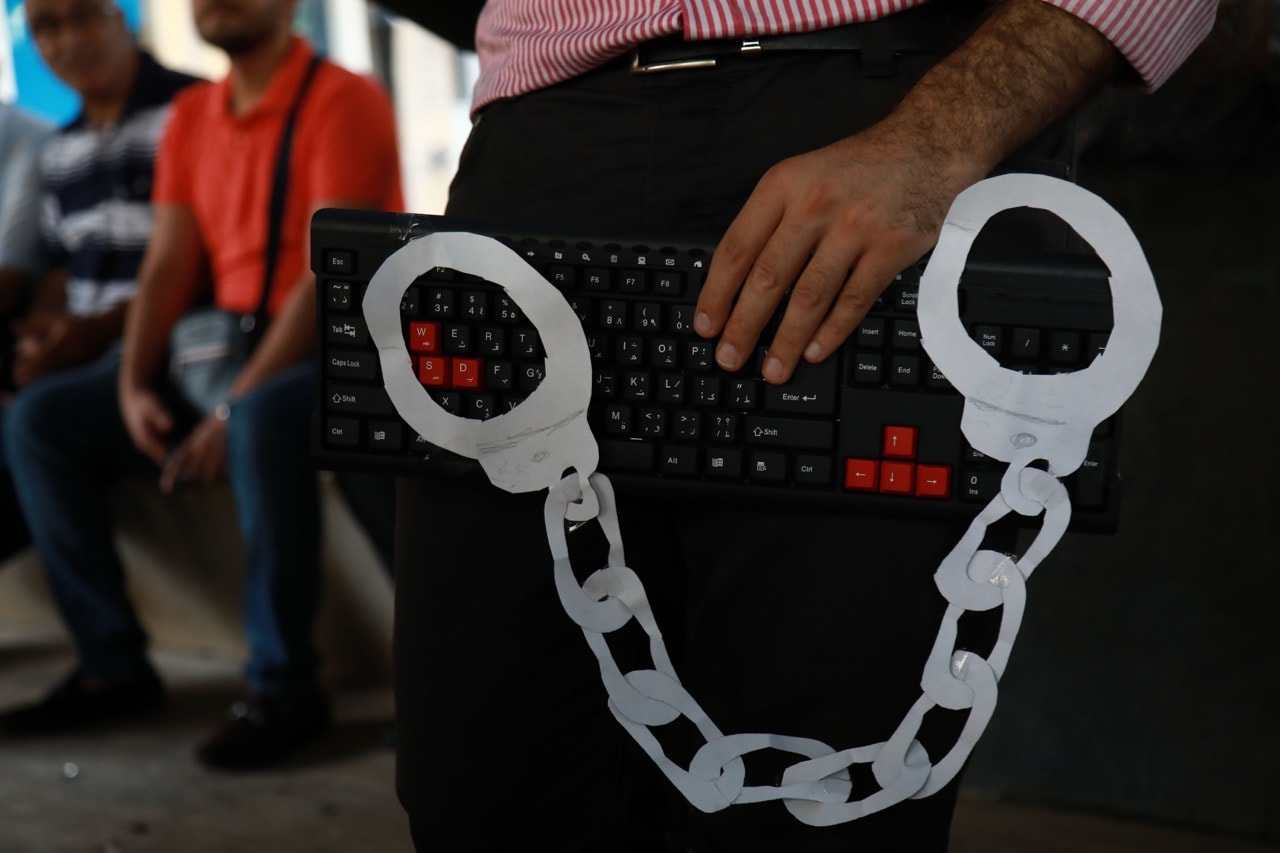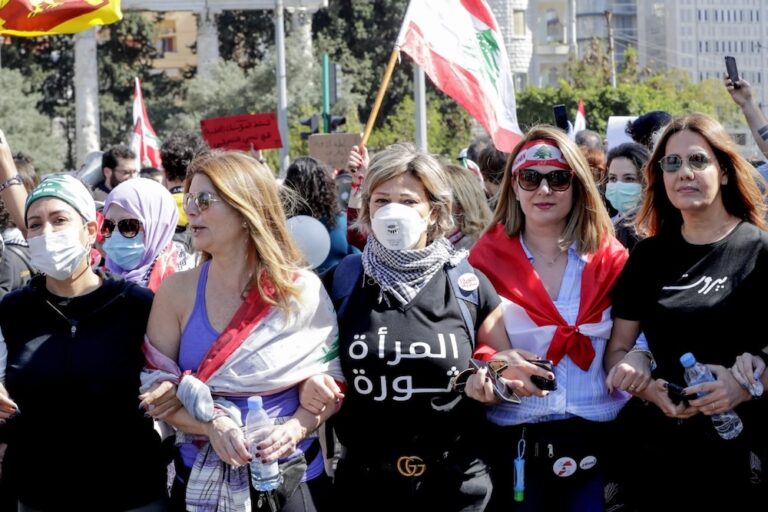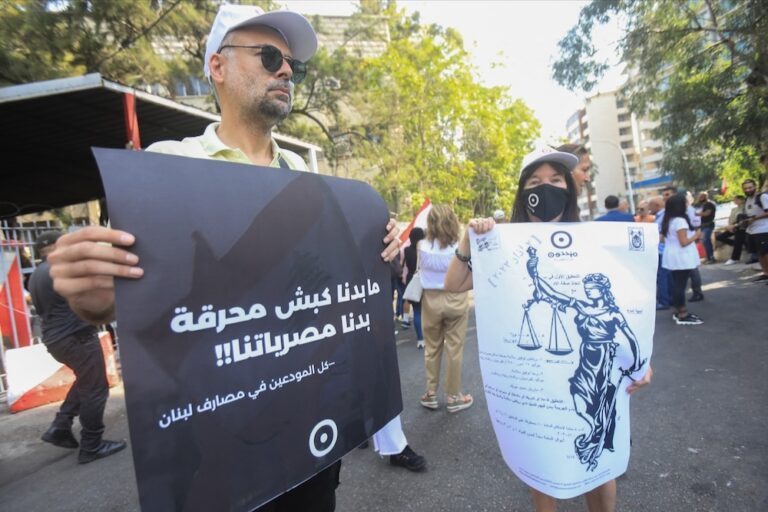Maharat Foundation took part in the first forum on internet governance in Lebanon and highlighted the importance of freedom of expression and information sharing on the internet in such a context.
This is a translation of an article that was first published on maharatfoundation.org on 10 December 2018.
The Advisory Committee for Internet Governance in Lebanon has successfully organised the country’s first forum on internet governance, held over two days at the American University in Beirut. It was attended by more than 300 people, including specialists and those interested in the issue as well as academics and technical experts from different backgrounds, including government, the private sector and civil society. The forum featured seven workshops and four discussion sessions on the issue of internet governance from a range of perspectives, with a view to encouraging the passing of developmental policies regarding the internet and internet users in Lebanon, as in other countries around the world.
In the following video, participants from various backgrounds reiterated their support for such forums in the spirit of encouraging discussions on the issue of internet governance in Lebanon. Maharat Foundation emphasised the role that the country’s youth should be taking, and one of those youth also noted how he learned of the obstacles faced by advocates of privacy and transparency in Lebanon today.
Internet governance and human rights
During the forum the Maharat Foundation organised a plenary session titled “Internet Governance and Human Rights” which addressed Lebanese policies regarding freedom of expression and information sharing on the internet and the work of governmental and legislative bodies in this regard. The session concluded with a number of recommendations, the most significant of which being: the media should be called upon to exert pressure for the passing of a media law; the law regarding the right to access information should be adhered to and its implementation ensured; institutions must commit to, and be aware of, the law due to their key role in its implementation; the trial of civilians in military courts in cases concerning freedom of expression should be banned; the distribution of information about the law and general legal awareness should be improved.
Balancing security, privacy and transparency
The Maharat Foundation also contributed to organising a session titled “Balancing Security, Privacy and Transparency” which featured representatives from all the groups involved in this issue, including: the security services (a representative from Lebanese Military Intelligence); internet service providers (the Cyberia company); and civil society groups defending freedom of opinion and opposing surveillance (representatives from the organisations ARTICLE 19 and SMEX). The participants emphasised the interrelatedness of all these levels with regard to the preservation of users’ privacy and ensuring transparency with regard to actions taken within the sector, in addition to protecting the security both of users and in general.
Effectively managing the Lebanese local domain name (.LB)
The Maharat Foundation also helped to organise a session entitled “Effectively managing the Lebanese local domain name (.lb)”. This session included many queries and clarifications regarding this aspect of web addresses and their management. The session revealed, through the contributions of experts participating in it, the importance of domain names, in general, on the levels of economics, business and education amongst others, in addition to their importance on the national level on the basis that they constitute an issue of sovereignty concerning the nation and its citizens while also representing them. The participants also discussed the problems impeding the development of the Lebanese domain name arising from the bureaucratic system on one hand and the lack of awareness of the importance of the domain name on the other.
Accessing information and strengthening creativity
The Lebanese International University, in collaboration with the Maharat Foundation, organised a session with the title “Accessing Information and Strengthening Creativity”. The session’s most significant conclusion was to emphasise that the law for access to information passed by the Lebanese parliament in 2017 does not require implementing decrees which highlights that some organisations and official bodies refuse to abide by the law with regard to publishing private information concerning budgets and financial management, amongst other issues.
The law for electronic transactions and cyber security
The forum concluded with an important session regarding “The Law for Electronic Transactions and Cyber Security” which discussed the management of information security and mechanisms for its implementation in addition to ways of combatting cybercrime. Notably, this session brought together diverse sectors including members of the judiciary and lawyers, the office for information crimes and Lebanon’s central bank, the Banque du Liban. The participants all emphasised the necessity of implementing the law and using it to combat cybercrime.
Accessing the internet and technology
The session on “Accessing the Internet and Technology” was one of the most significant during the forum. It discussed the most significant challenges and barriers impeding the development of the internet sector in Lebanon on the political, economic and security levels. The discussion touched on internet infrastructure, the privatisation of the sector and ways to improve the internet service. A consistent theme was the demand for agreement on a strategic vision at the national level for communications and the internet.



